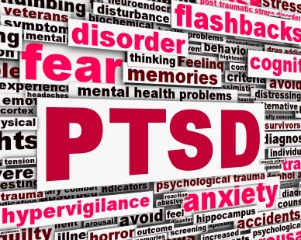
The Emotional Trauma Quiz
Why take the Emotional Trauma Quiz? Many people have had emotional traumas that affect their everyday lives in a negative way, such as PTSD. An emotional trauma is any event that has lasting negative effects on you. It may be an event from long ago, or a current one. It may have happened over and over again, or just once. It may have happened to you directly, or you watched it happen to someone else.
If you think you may have experienced emotional wounds that are affecting your life now, take the
EMOTIONAL TRAUMA QUIZ
Do you have:
1. Nightmares about things you experienced or observed in your past?
2. Flashbacks of past traumatic events as if they were happening now?
3. Trigger Reactions to people, places or experiences reminding you of the past?
4. Avoidance of things that remind you of traumatic events?
5. Withdrawal from people due to feelings of anxiety or fear?
6. Deadening or numbing of your emotions?
7. Intense fear, rage or other negative feelings without a reason?
8. Difficulty concentrating or focusing?
9. Constantly on the alert for things that might happen to you?
10. Problems with memory and problem-solving?
If you checked one or more of the first four questions, and one or more of the last six questions, you may be suffering emotional trauma or PTSD. You may benefit from treatment with EMDR (Eye Movement, Desensitization, and Reprocessing Therapy). This is a form of therapy that helps heal trauma, and return a person to healthy, effective living.
Click on the video below for further information on the EMDR process.
The last speaker was Francine Shapiro, the pioneer of EMDR.She talks about two major types of trauma: major or big “T” traumas and minor or small “t” traumas. Big “T” traumas jolt you out of your usual way of thinking and understanding of the world. Some examples include abuse, rape, assault, war, accidents, disasters, or losses. These often lead to symptoms of Post-traumatic Stress Disorder (PTSD) that often severely limits a person’s ability to function effectively.
Small “t” traumas (relational traumas), like being bullied or constantly criticized as a child, affect people in subtle ways such as poor self-esteem, feelings of ineffectiveness, or difficulty with relationships. A person may walk around with a chronic sense of not being good enough or worthy. The traumatic memory becomes trapped in one’s mind, only to be replayed over and over again in his or her body and mind. Often something or someone in a person’s life triggers the traumatic memory, bringing up all the original thoughts and feelings. Perhaps a woman becomes fearful when her boyfriend raises his voice because it reminds her of feeling scared and helpless as a child to a verbally abusive parent.
Before a trauma, a person holds certain assumptions about themselves as well as his/her safety and security in the world. Then a traumatic experience happens, and nothing is the same again. You no longer have a peaceful mind or trust that the world and people in it are safe. You are vulnerable and the meaning of your life that was present in your world just a short time before is now gone. Your usual thoughts, behaviors, attitudes and functioning have changed and you can’t seem to get them back. They are often replaced by feelings of guilt, fear, anxiety, depressed mood, or rage along with physical symptoms ranging from body tension to back pain or severe migraines.
Eugene Kayser, lic. Marriage & Family Therapist
418 Stump Rd., Montgomeryville, PA 18936
215-813-8633
Looking For A Trauma Therapist?

Jennifer McCarron LMFT is a Nationally Certified Therapist by the EMDRIA, specializing in EMDR treatment for emotional trauma and PTSD.
For a consultation, call her at
215-361-7654
If you would like to receive the Couples Guide Newsletter containing articles on relationships, please sign up below.
Visit The Relationship Forum to get and give advice on your relationship issues.
If you're struggling with your relationship, this is the place to talk about it!
Our counselors will answer your questions.
And you, our readers, can offer advice from your experience.
You always maintained your impartiality with us. You encouraged Rita to be more assertive in stating what she wanted to get from your counseling sessions, as well as what she wanted to get from the relationship. You taught both of us better communication between ourselves, which lead to an emotional comfort level between us that didn't exist before. You took control of the direction of the session if things were not moving along. Thanks so much for helping us." Rita and Mark |

